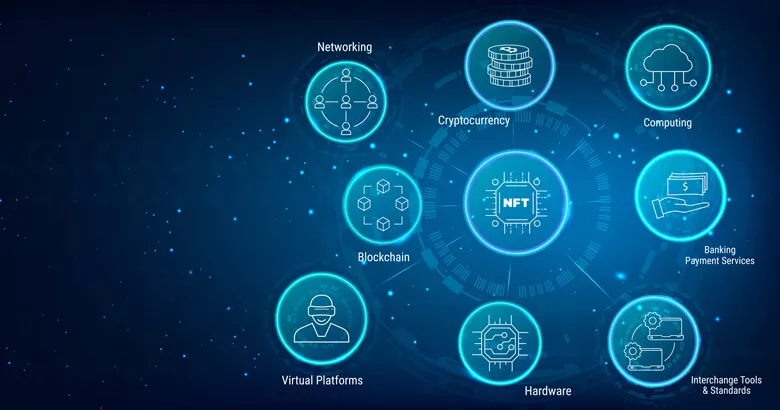The Curated News Hub
Your daily source for diverse news and insights.
Blockchain: The Digital Ledger That Could Change Everything
Discover how blockchain technology is revolutionizing industries and reshaping our future. Unlock the potential of the digital ledger now!
What is Blockchain and How Does It Work?
Blockchain is a decentralized digital ledger technology that enables the secure and transparent recording of transactions across multiple computers. Unlike traditional databases, where a single entity controls the data, blockchain operates on a peer-to-peer network, allowing all participants to have access to the same information in real time. This decentralized nature enhances security, as altering any single record would require consensus from the majority of the network, making fraud and unauthorized changes virtually impossible.
The way blockchain works can be broken down into key components: each transaction is grouped with others into a block, which is then linked to the previous block, forming a chain. This makes it transparent and traceable. Once a block is filled, it is added to the existing chain and becomes part of the public ledger. Furthermore, blockchain utilizes cryptographic techniques to secure data, ensuring that only participants with the correct keys can access information, thus fostering trust in the system.

The Benefits of Blockchain: Transforming Industries Beyond Cryptocurrency
The benefits of blockchain technology extend far beyond its association with cryptocurrency. Industries such as supply chain management, healthcare, and finance are increasingly leveraging its capabilities to enhance transparency and security. For instance, in supply chain management, blockchain provides real-time tracking of goods, ensuring that every transaction is recorded immutably. This not only reduces fraud but also allows for greater accountability among all parties involved. According to a report by IBM, companies utilizing blockchain in their supply chains can achieve significant cost savings while improving efficiency and reliability.
Moreover, the healthcare sector is experiencing a revolution thanks to blockchain technology. By creating secure and tamper-proof patient records, blockchain enables seamless data sharing between healthcare providers, ensuring that patients receive accurate and timely care. According to Harvard Business Review, this not only enhances patient safety but also improves the overall quality of healthcare services. As industries continue to explore the myriad applications of blockchain, it is clear that its benefits are transforming operational efficiencies and fostering trust in various sectors.
Is Blockchain the Future of Data Security and Transparency?
Blockchain technology is gaining significant traction as a transformative force in the realm of data security and transparency. By harnessing a decentralized network, blockchain ensures that data cannot be altered or tampered with once it has been recorded. This level of security is achieved through cryptographic hashes and consensus mechanisms, making it incredibly difficult for malicious actors to compromise the system. According to a recent article by Forbes, blockchain's ability to provide an immutable ledger not only enhances data integrity but also streamlines auditing processes.
The potential of blockchain extends beyond mere data protection; it also fosters transparency by allowing all stakeholders to access the same information in real time. This capability can be particularly transformative in industries such as supply chain management, where tracking provenance is crucial. As highlighted by Gartner, organizations that implement blockchain solutions can provide greater accountability to their customers, ensuring that the data they rely on is both accurate and reliable. As businesses increasingly recognize the benefits of adopting this technology, it is clear that blockchain serves as a powerful ally in the quest for enhanced data security and transparency.